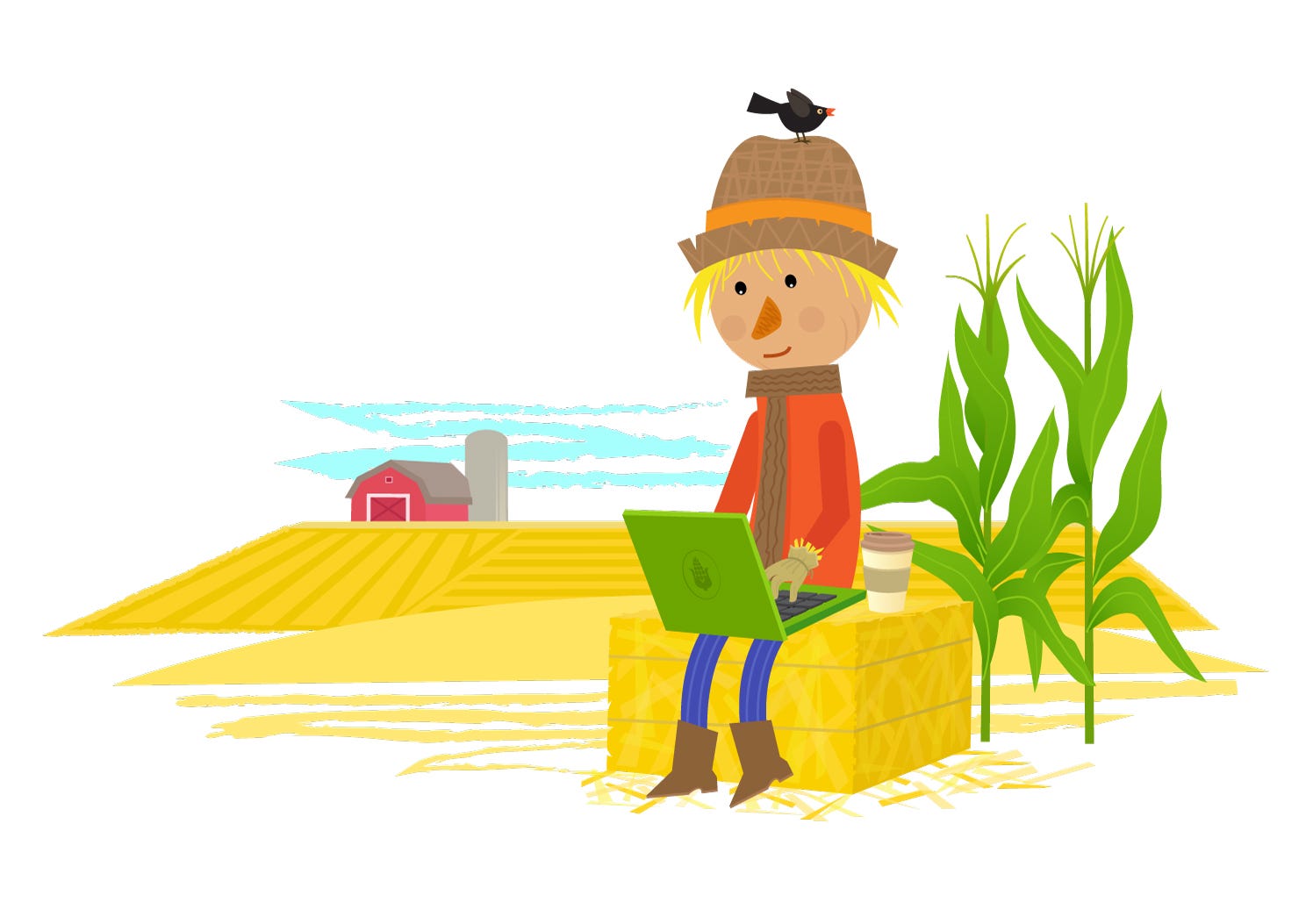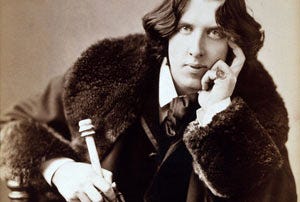Here’s an earworm for you…
“I could while away the hours
Conferrin' with the flowers,
Consulting with the rain;
And my head I'd be a scratchin'
While my thoughts are busy hatchin'
If I only had a brain…”
You’re welcome.
That of course is Scarecrow singing in the 1939 movie, “The Wizard of Oz”, based on the book by L. Frank Baum of (almost) the same name. In both the book and the movie, the Scarecrow’s Quest is to find a brain to replace his mindless head of straw. We all know the story, so I won’t go too far down that Yellow Brick Road. But what I want to underline here is that at the end of the story, the Scarecrow, along with the Cowardly Lion and the Tin Man, find that they had what they were looking for all along.
So why the hell were they traipsing along golden pathways fighting off evil trees and flying monkeys? Why put themselves through all that to find what was right in front of them?
In fact, we writers do it every day. It’s part of the human condition, and it all comes down to one thing: self-confidence. They didn’t believe that they had a brain or a heart or courage. In other words, they didn’t believe in themselves, even though they had it in them all along.
I think you know where I’m going with all this…
Believe in Yourself – or At Least Don’t Let Your Disbelief Hold You Back
I feel like I’m edging along that fine line between friendly musings and didacticism, which is something I wanted to avoid in this newsletter. So please, just take this as an affable observation rather than gospel from on high: self-confidence is the key to melting away many of our writing bugaboos.
A good writer friend of mine gave me the inspiration for this post. One night, three of us were talking about the fact that so many writers are afraid to even call themselves writers, and we tried to uncover exactly why that is. There seem to be two criteria:
Whether or not they are doing “serious” writing (whatever that means)
Whether or not they perceive themselves to be “successful” at doing that “serious” writing
So if we dissect Point 2 a bit, essentially this means that writers will only consider themselves to writers when others have deemed them to be a writer. Their perception of success and achievement hinges on the acceptance of others.
What I find really interesting here is that I wonder what it is they think they are if they aren’t writers? It’s like a surgeon not thinking s/he’s a surgeon until their patients wake up and say, “Good job!” The other thing you notice is that this self-constructed reality allows writers to set up an almost-impossible set of standards for themselves to be met in order to be “successful”. I suspect that even if they did win the Booker Prize, they’d make up some scenario about how they lucked into it, and it really wasn’t them at all…
(Editor’s note: Between the time I started writing this and finished, Suzette Mayr won the 2022 Scotiabank Giller Prize for her novel The Sleeping Car Porter. During her acceptance speech, she said she thought she was “officially done with my feelings of imposter syndrome as a writer”. So maybe the Giller is the cure.)
None of my observations or musings, btw, is meant to slag off writers. It is such a common affliction that obviously something universal is at work here. And, as we saw in my first post One Small Step, even the most accomplished and acclaimed and famous writers (or top-achievers in other disciplines, like astronauts) are susceptible to imposter syndrome.
And so it goes.
But there are some things we can do to build self-confidence. In fact, you might argue that every post I’ve written in this Substack so far has been addressing self-confidence in one way or another!
6 Ways to Avoid Self-Doubt and Move on Down the Road
The worst part of self-doubt in my mind is that it can be paralyzing and prevent us from writing. But there are things we can do to overcome our misperceptions and help us have fun with our writing again.
Adjust Your Expectations
This doesn’t mean settle for second-best. You should always try to make your writing better. But don’t let perfectionism drag you down, either. As we saw in a previous post, Catcher Gone Awry, there is a good argument for the fact that perfectionism may have been at least partially responsible for JD Salinger never publishing another novel.
We need to redefine “perfect”. Particularly, we need to see that first draft as nothing but a Lump of Clay to build a story/poem/piece from. If you expect too much from yourself, you’ll never be happy with your writing – even if you do win the Booker!
Take Your Time
Dorothy didn’t get to the Emerald City in a day. George RR Martin didn’t write his Game of Thrones series in a decade. Setting a deadline can be helpful, but it can also be counterproductive. It probably depends on what type of person you are. Either way, if you are doing honest work, don’t sacrifice quality or your own anxiety for some arbitrary completion date.
Join a Writing Group

I highly recommend this! I’m part of several writing groups. I personally find that in-person writing groups are the best, but if that’s not an option, there are some (probably many, many) online as well. Writing groups give you that sense of camaraderie, allow you to share experiences, provide you with encouragement (and opportunities to encourage others), and can provide you with the inspiration and motivation to…
Write Regardless
It’s hard to break the negative feedback loop. But it’s vital to try. We all have that nagging question at the back of our minds when we write: What’s the point? Even successful writers have it. However, I suspect they find it easier to overcome because of the positive feedback loop they’ve set up for themselves: success and recognition.
So make up answers to “What’s the point?” such as “Because it’s fun” or “Because I want to write” or “Because I believe that I can go somewhere with this”. Maybe tape your answer(s) to your monitor or a wall in your sightline since you will likely ask yourself the same question again and again.
Review Your Why
I covered this in the recent post, Why Keep Off the Grass?, so I won’t rehash other than to say that reviewing why you write is a good way to overcome feelings of self-doubt and help you write regardless.
Fake It ‘Til You Make It
I love this concept, and it works equally well for writers. If you just cannot trick your mind into believing you’re a writer or if it feels too fake to call yourself one, then lean into the fake. Pretend you are a writer, even if you don’t feel like you are. Do all the things a “real” writer would do. Set a schedule, get a routine, produce some pages. These will all get you one step closer to feeling like the writer you are.
Key Takeaway: Just as the Scarecrow always had a brain, you always had the ability to call yourself a writer. But even if you can’t bring yourself to call yourself that, don’t let it stop you from actually writing! Search out for support, adjust your ideas of success and, if worse comes to worst, fake it until you make it. Whatever it takes to get you writing pages so you can start feeling like the writer that you are.
Back to You…
Do you feel like a “real” writer? If not, why? Do you find it stops you from writing? Let us know in the comments below! I’m really interested to get more takes on this.
In the meantime, below is a (very short) clip from The Wizard of Oz of the Scarecrow getting his diploma. Consider it your excuse to start calling yourself a writer, too.
Until next time, keep writing with wild abandon!
~Graham
Thanks for reading To Write with Wild Abandon! Subscribe for free to receive new posts and support my work.
email me if you get lost.









I think of you as a writer Graham. It’s what I call myself as well. I work at it nearly every day and it calls on the best I’ve got within me. But nobody gave me a job title and I report to no one. What could be better than that?